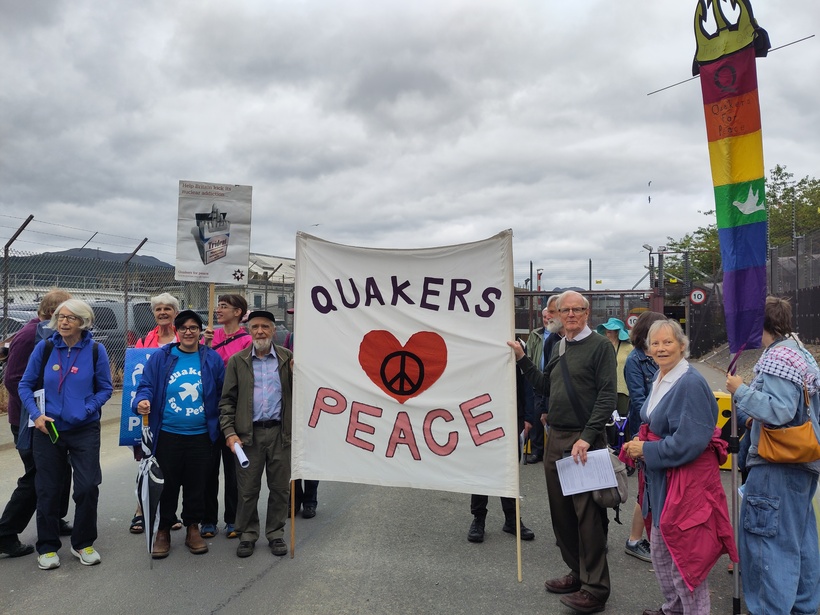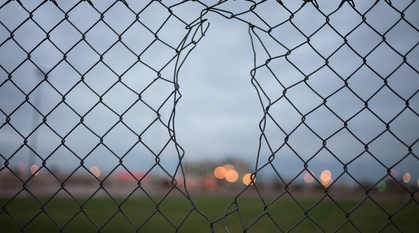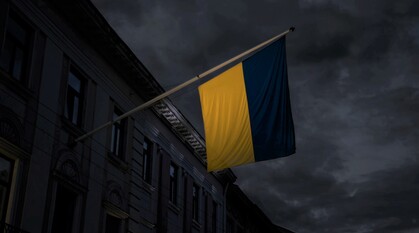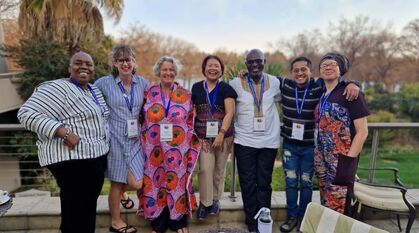Peace education in Scotland
A new Peace Platform provides the opportunity for Scotland to lead the way in peace and disarmament education.

Building on research which Quakers in Scotland contributed to, the Scottish government has provided funding for a recently launched Scottish Peace Platform.
This space for individuals and organisations involved in peace work in Scotland aims to provide opportunities for knowledge exchange on peacebuilding, including by organising in person meetings, workshops and conferences, and hosting space for members' concerns around issues such as peace and disarmament education. Coming just after the 80-year anniversary of the bombings of Hiroshima and Nagasaki, the need for peace education for all is critical.
During commemorations of the 80-year anniversary this year in Japan, Minoru Suzuto, one of the few remaining Hibakusha (atomic bomb survivors), said "There will be nobody left to pass on this sad and painful experience in 10 years or 20 years. That's why I want to share [my story] as much as I can." Minoru's words call on us to continue to share those stories, as well as to grapple with the reality that we still teeter on the edge of atomic annihilation.
Hosting what we oppose
Scotland is in the paradoxical position of hosting nuclear weapons while opposing them as a matter of policy. The Scottish Government, along with 94 state signatories, supports the UN Treaty on the Prohibition of Nuclear Weapons and wants the UK to sign (which would lead to the scrapping of nuclear weapons), but the weapons are a “reserved issue". The UK Government prefers to keep the weapons at hand 24/7, based out of Faslane naval base on the Clyde. Meanwhile, as No2Nuclear Power have reported, a serious nuclear incident took place at Faslane earlier this year, raising fears for the environment and local communities, and demonstrating shortfalls in the safety and integrity of Britain's nuclear weapons.
This complexity means it's a global citizenship issue worthy of exploration in the classroom, in Scotland as well as in the rest of the UK. At a time of increased militarism and anxiety about the prospect of war, and as the Nuclear Education Trust have found, more information, education, and public debate is urgently needed on nuclear weapons issues.
Charlotte Dwyer, one of Scotland's leading global citizenship educators, recently wrote in the Scotsman, "Education can be a powerful force.... Standing in solidarity with the global community, working for a cleaner, safer world with greater equality, peace and justice."
Scotland has many educators ready to take up the challenge of addressing these topics, supported by Development Education Centres and organisations like CND Peace Education and Peace Education Scotland.
Whatever your stance on nuclear weapons, bringing empathy, critical thinking and moral reasoning to the issue is an example of the 'responsible citizenship' embedded in the Curriculum for Excellence.
The new Scottish Peace Platform shows that Scotland seeks to be a voice for peace in the world, and a key way to do so is to promote peace education.
A local focus for the classroom
To give this global issue a local focus, Quakers are developing learning materials on the theme Nukes on the Clyde. The materials invite students to consider a range of perspectives from a Royal Navy submariner to a Faslane protester to develop their understanding and opinions about the weapons.
Since 1978 the United Nations has urged governments 'to take steps to develop programmes of education for disarmament and peace studies at all levels' and Scotland is well-placed to lead the way in the United Kingdom and globally.
What can I do?
- If you are involved in education or know someone who is, consider teaching from or sharing Quakers' Peace Education Materials.
- Your local meeting will soon be receiving a copy of Peace at the Heart: a relational approach to education in British Schools, and we hope that you will consider using this to reach out to local schools, and to get in touch with your local political representative to ask what they are doing to support UN Sustainable Goal 4.7, to educate for “a culture of peace and non-violence".
- Friends involved in peace work in Scotland may wish to sign themselves up as individual members of the Scottish Peace Platform.


